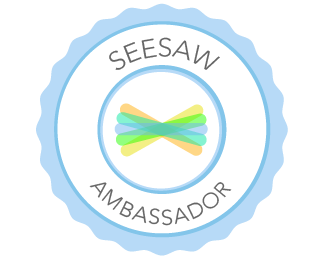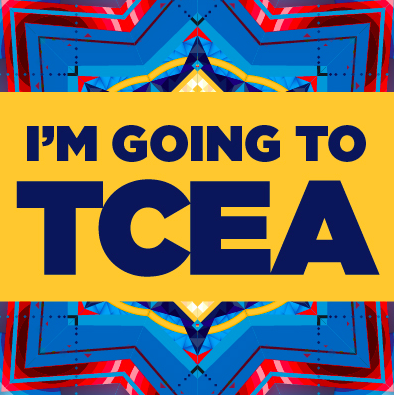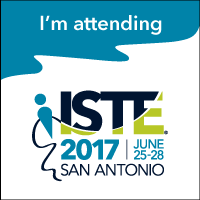Years ago I attended training that included a panel of students. Some had familiar faces from many moons before, but now they sat in front of us as young adults, about to enter the Real World. They shared experiences from their school journeys. One educator asked them to share THE most meaningful learning experience they could recall. They remembered a variety of events, some all the way to elementary school. We all laughed when one student remembered making green eggs and ham in Kindergarten! He shared how it was fun and engaging and made the book so much more interesting to an active five year old. It said a lot about our students and what mattered to them, and how much what we do as educators matters to our students. As they shared, I got tears in my eyes. I wished at that moment I could go back in time to do more of what mattered to ALL of my students.
At the beginning of each year, we always ask parents for information about their children. It helps us know a little about them. For several years, I sent home a Parent Survey asking parents for input regarding a variety of topics from homework, to communication, to how challenged they felt their child was, etc. A few years ago, I realized it wasn't helpful to ask them at the end of the year - I was finished teaching their children! I needed to ask way earlier! However, with all of this - I never directly asked my students.
Years later, especially once I became a parent, I began to listen - really listen - to my students. I was challenged by an administrator to not always do what has always been done without asking 'Why?' It slowly became clear to me that the laminated plans with files from each week from every year prior weren't going to work if we were going to really reach each learner - which varies year to year. Isn't that one of the BEST things about education? There is never a chance to get bored because each year provides for us a new group of individuals. For example, three years ago my students LOVED to listen to music while we worked. It was soothing and helped them focus. This year, music is a distraction. Some students enjoy it, but most seem irritated with the extra noise. What works this year probably won't completely work next year. Now, not meaning we throw it ALL out every year - but different combinations of children have different needs. We have to stay aware to what they each need and what motivates our students.
A few years ago, I saw some ideas on Pinterest for getting to know your students; but with my first graders, I needed some easier ways to get to know them that didn't require the ability to read or write the first day of school. I started with Four Corners and using color dots to mark a spot on a scale. Over time, I asked more and learned more about my students. I was able to adjust activities on our team plans to meet my students' needs and interests. I felt like I truly knew my students as individuals, at least better than in years past. I continued to incorporate student ideas and interests by implementing Genius Hour and EdCamp in class. I felt it was engaging and meaningful learning for my students but was that enough? Baby steps...
This year I have the privilege of 'looping' with my students (I have the same core group, adding a few that moved in and a few moved away). I knew better than to assume I knew my students as they were last year. Three months passed and I know they could have different ideas, interests and goals as 3rd graders than they did last year. So, with the help of ideas gained once again from Pinterest, I created some charts to get to know my students:
It was so helpful to know their goals, feelings, interests, etc... and I read them and used them to get the year started. I started the year using their input to create our classroom learning environment.
After each PLT group, I share a QR Code that leads to a Google Form to ask for input - what did you like, what do you not enjoy, how engaged did you feel, how challenged did you feel, etc. This time, I discussed briefly the results with my students and how I took what they said and made some adjustments for the next round of PLT group. I noticed some smiles. I hoped with all my heart they felt heard.
After Code Club wrapped, I shared a QR Code with a Google Form for input. I giggled as I read their words but felt we had a successful Code Club based on their feedback. I also have information to base a second round of Code Club in the next semester to meet their needs.
Our district is encouraging Student Voice by providing a book study and option to participate in a pilot group. Unfortunately, I've missed the meetings but I read the book Student Voice: The Instrument of Change. After reading the book, I have a better appreciation for what my students have to offer, not just in our classroom but in our school and community. I feel like I'm on the right track. After all, I know I appreciate it when administrators ask us (staff) for input and ideas - but I appreciate it even more when there is follow through and it is implemented. Am I truly implementing the information my students are sharing with me? Or am I just giving them an outlet to communicate? I've asked for quick responses and I've touched base throughout the year but I know what I need to do next after reading the book.
Student Voice is defined as:
"Students are meaningfully engaged in decision making and improvement-related processes in their schools."
Meaningfully engaged - that is the part that stuck with me. I'm providing the outlet but is it meaningful? You should see my list of goals after reading this book. : )
What surprised me about this book was how closely it is connected to Mindset by Carol Dweck (which I am currently reading) and had much to say about how we view our students. I completely agreed with it all! My own two children are such unique learners, no textbook teacher with laminated lesson plans can reach either of them effectively. I hope I never lose sight of how important creativity and curiosity is to a child, to any learner.
Some take-aways I have from Student Voice:
*SV builds trust and respect between teachers and students.
*Students KNOW they matter.
*SV builds confidence and ownership.
*Student Voice -> Adults who listen -> PARTNERSHIP for ACTION (I need to work on the last part - partner with my students)
*Students and educators are connected.
*Learners are successful.
*Students feel they belong.
*Student survey results do not always mean what we think they mean. It takes discussion to truly understand what they mean.
I plan to:
*hold Student-led conferences (this is already a goal of mine, but provided even more support)
*add self-reflection more often to student work
*continue to survey my students but try harder to use the information they provide with purpose
*sit and listen to students to clearly understand survey results
*revisit class rules and proceedures and ask fror student input to rewrite as needed
*eat lunch with students often to visit and learn about them as people, learn about their aspirations and goals
*create a middle of the year survey to see how students view everything
*team teach with students
*continue to provide a risk-free learning environment but gain input from students to ensure it is how they feel our classroom should be
There is so much more I'd love to share from this book. It is inspiring and motivating to read and reminds me to stand for what I believe as an educator - to teach the whole child, each child. Each one is a unique learner. I will listen to what they have to offer and value their input. I wrote several quotes from this book but one I enjoyed from p.169:
"Putting at the center of what we do in education, the student and the student's need for a learning environment that supports his or her need to develop self-worth, be engaged and form a sense of purpose."
How do you incorporate Student Voice in your classroom/school?
-Notes and quotes from Student Voice: The Instrument of Change by Russell J. Quaglia and Michael J. Corso
Saturday, December 26, 2015
Subscribe to:
Post Comments
(
Atom
)
















No comments :
Post a Comment